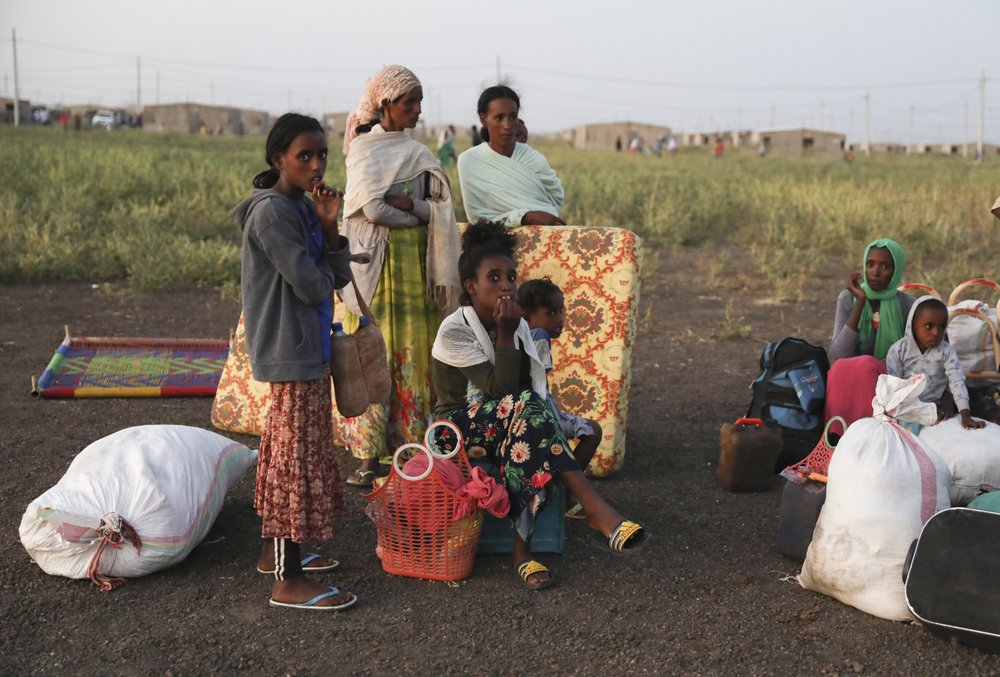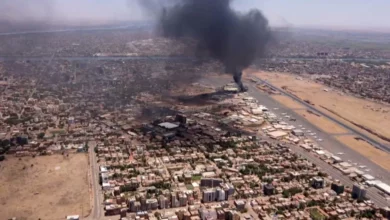
CAIRO (AP) — Ethiopia’s growing conflict has resulted in more than 25,300 refugees fleeing the Tigray region into Sudan, the UN refugee agency said Monday, as fighting spilled beyond Ethiopia’s borders and threatened to inflame the Horn of Africa region.
More than 5,000 refugees arrived in Sudan’s border provinces of Kassala and al-Qadarif on Sunday, the highest single-day number of arrivals since the start of the conflict in Tigray earlier this month, the UNHCR said.
Ethiopia’s Nobel Peace Prize-winning Prime Minister Abiy Ahmed announced on November 4 a military offensive against the regional government in Tigray in response to an attack by Tigray forces. Each government regards the other as illegal after a months-long falling out as Abiy marginalized the once-dominant Tigray People’s Liberation Front.
Abiy’s government on Monday again refused international pleas for dialogue and asked for more time. “Mediation at this point will only incentivize impunity,” senior official Redwan Hussein told reporters, even as the leaders of Uganda and Kenya urged the warring sides to find a peaceful end to the political and humanitarian crisis.
Abiy also said his government is ready to “receive and reintegrate” the refugees. “We vow to our innocent civilians that have fled, to protect their property, enable humanitarian support by the (federal forces) and guarantee their peace upon return.”
But many refugees say they fled under attack from those federal forces.
Most of the refugees arriving in Sudan are children and women who walked long distances on rugged terrain to reach safety. They arrive exhausted, hungry and thirsty, having had to cross a river by boat or in some cases by swimming. The river, known as the Tekeze in Ethiopia and the Setit in Sudan, divides the eastern Sudanese areas of Lugdi and Hamdayet.
Authorities in Kassala and al-Qadarif were already overwhelmed and urged UN agencies to speed up assistance to deal with a rapidly deteriorating humanitarian situation. Officials said last week they expected up to 200,000 refugees to enter Sudan.
Activist Abdel-Rahman Awad Abdel-Rahman in al-Qadarif said there were “many, many” Ethiopians unregistered with the U.N. refugee agency. He said they arrived with almost nothing and that a “huge amount of assistance” is needed urgently to deal with the growing numbers.
Al-Qadarif Gov. Suliman Ali said Monday the response by UN agencies and the international community was “slow” compared to the pace of refugees arriving in the province.
The UNHCR said it was working with Sudanese authorities to “mobilize resources to provide life-saving assistance services to the new arrivals.”
Filippo Grandi, the UN high commissioner for refugees, appealed Monday for assistance to help the Sudanese government respond to the situation on its borders.
“Resources are urgently needed to meet the basic needs of the refugees,” Grandi said in a tweet.
The influx of refugees adds to Sudan’s economic and security burdens. The transitional government has already been struggling under the weight of decades of US sanctions and mismanagement under former ruler Omar al-Bashir. The former dictator, who came to power in an Islamist-backed military coup in 1989, was ousted in 2019.
Eastern Sudan, which borders Ethiopia’s Tigray region, was the scene of bouts of tribals violence in recent months that claimed dozens of lives.
Fleeing Ethiopians were being moved to the Um Rakouba refugee camp but it suffers from food shortages, said Abdel-Baset Wadaa, head of the camp. “We don’t have a problem with water, but we have a lack of food and difficulty providing meals. We need support,” he said.
Refugees gave The Associated Press witness accounts of the conflict as the region was nearly entirely cut off from the rest of the world. Communications are down, airports are closed and roads are blocked.
At the Um Rakouba camp, Tigrian refugee Marwahid Tefani said she was to give birth when the conflict started, but then she was forced to flee to Sudan. “Now I have passed my due date and conditions are bad,” she said.
Refugee Burhan Males said he fled his hometown of Humera in Tigray after it came under attack from what he believes were both Eritrean and Ethiopian forces.
“A bomb came from the Eritrean direction and an attack from the direction of the Ethiopian federal government in the city. A lot of people died there,” he said.
Tigray officials have accused Eritrea of entering the conflict on the side of Abiy’s government in Ethiopia. Tigray regional president Debretsion Gebremichael said Sunday that missiles have been fired at Eritrea’s capital, Asmara, and he threatened more.
Officials in Eritrea, one of the world’s most reclusive nations, have not responded to requests for comment.
___




